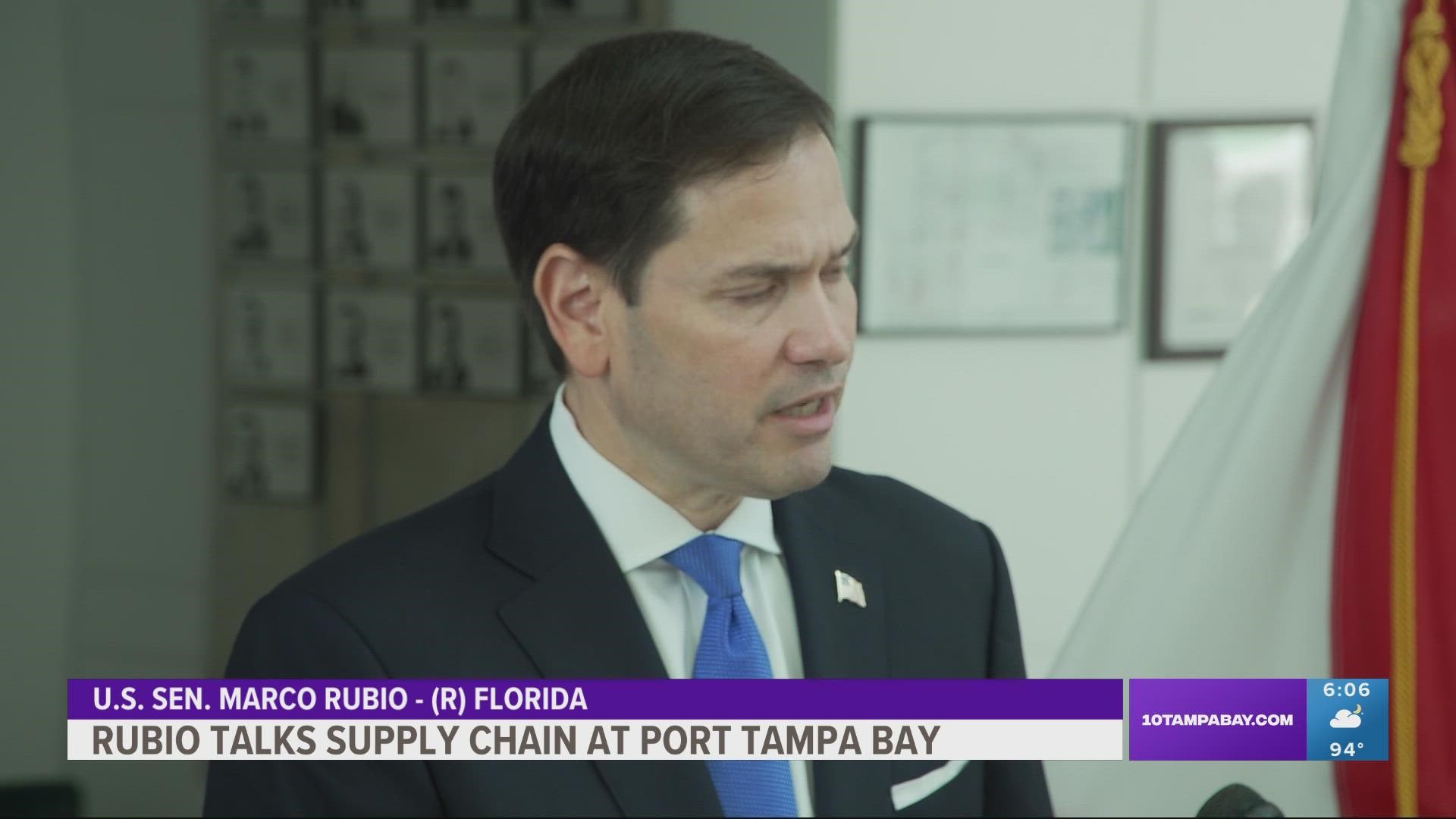TAMPA, Fla. — U.S. Senator Marco Rubio on Friday was in Tampa taking part in a roundtable discussion at Port Tampa Bay.
The discussion, which centered on supply chain issues, focused less on who or what is to blame but more on the strategies needed to solve such problems in the future.
Port Tampa Bay is an important part of that discussion since it could be uniquely positioned to help address bottlenecks at the nation’s larger ports.
“Port Tampa Bay is not just geographically positioned to benefit from it," Rubio said. "But they have a strategic vision and a supporting state and local government and community that’s thinking about it from a regional and strategic standpoint."
The senator and panel members spoke on a wide range of topics underscoring America’s vulnerability to supply chain shortages which were exposed by COVID-19.
They include a dependence on foreign imports and key components that Rubio suggested could be manufactured here — or at least in the Western Hemisphere.
That, he said, would make ports in Florida a logical choice for distribution and exports.
“Workforce development. Bringing manufacturing onto the port site. Becoming a leader and shipbuilding and crane building," Rubio said. "These are strategic things that I think position the port to continue to grow and expand its relevance and importance."
Some projects aimed at better positioning Port Tampa Bay are already in the works.
For example, the Army Corps of Engineers is working on expanding the channel leading into Port Tamp Bay to accommodate larger ships for example.
“There are, as I said, some things that we can do right away that are deliverables,” Rubio said. “But there are some big picture long-term things that are important to the port of Tampa. Actually, important to America.”
Val Demings, Rubio’s Democratic challenger in the upcoming election, also pointed out Rubio had voted against the bipartisan infrastructure bill helping to fund many of the projects and concepts the panel discussed.
Rubio defended his vote, saying the bill had too much wasteful spending.
“Why do I have to vote for a bill that has that garbage in it?” he asked, “In order to get projects for our state in our country? Especially when the formula that they’re using to distribute the money hurts Florida?”
Port Tampa Bay is also touting itself as a smart place for ships to unload because 80 percent of the trucks that come to Florida from points north go back empty.
By bringing cargo ships here, they said, there would be a fleet of trucks already in place to distribute anywhere in the southeast. Rubio agreed, saying Port Tampa Bay’s close proximity to I-4 makes it a natural distribution point — not just for Florida, but the entire region.

